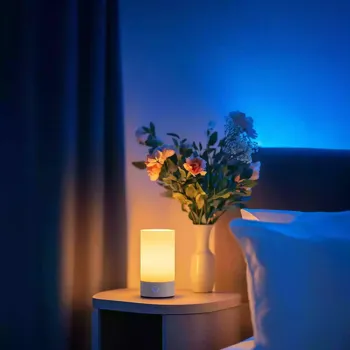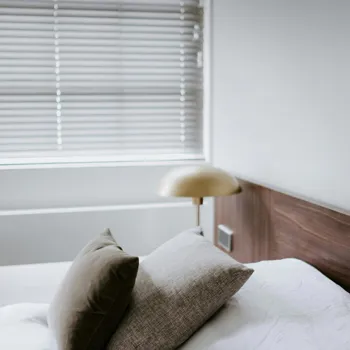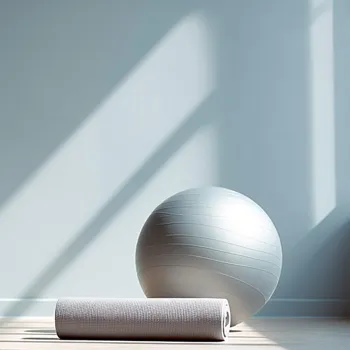Unraveling the Science of Sleep: 7 Tips for Optimal Rest. Dive into the secrets of sleep for a healthier you
In the hustle-bustle of Indian life, where deadlines loom large and social commitments fill our
calendars, sleep often takes a backseat. But what if we told you that prioritising sleep is not a luxury, but a necessity for a healthier, happier, and more productive you?

Science has unlocked many secrets about sleep, its importance, and how we can optimise it. So, let's dive into the science of sleep and discover seven simple yet effective tips to guarantee yourself a restful night.
Sleep is essential for physical and mental restoration, with REM and Non-REM stages vital
Sleep is not just about closing your eyes and drifting into oblivion. It's an active process where our brain goes through various stages, each with its unique role in physical and mental restoration. There are two main types of sleep: Rapid Eye Movement (REM) sleep and Non-REM sleep.

Non-REM sleep has three further stages. We cycle through these stages several times during the night. Each stage is important for memory consolidation, hormone regulation, and tissue repair.
The amount of sleep we need varies from person to person, but adults generally need around 7-9 hours of quality sleep each night. Less than that, over time, can lead to several problems.
Sleep is crucial for cognition, health, and emotional well-being
Now, why is sleep so important? Firstly, it's crucial for cognitive function. When well-rested, we can concentrate better, make clearer decisions, and learn more effectively.

Chronic sleep deprivation, on the other hand, impairs cognitive abilities, making it difficult to focus, remember things, and solve problems. Secondly, sleep plays a vital role in maintaining physical health. This is because sleep allows our bodies to repair and rejuvenate.
During sleep, the body produces hormones that help repair tissues, build muscle, and fight off infections. Insufficient sleep weakens the immune system, making us more susceptible to illnesses. Finally, sleep is essential for emotional well-being.
Lack of sleep can lead to increased irritability, mood swings, and anxiety. A good night's sleep, however, helps to regulate emotions, reduce stress, and improve overall mood. So, sleep's effects on our well being cannot be taken lightly.
Consistent sleep schedule syncs internal clock for better sleep
Our bodies have an internal clock, known as the circadian rhythm, which regulates the sleep-wake cycle. Maintaining a consistent sleep schedule, even on weekends, helps to synchronise this clock, making it easier to fall asleep and wake up at the same time each day.
When you go to sleep and wake up at the same time every day and night, your body’s internal clock functions properly. This is because our bodies are used to it. If you disrupt the process by sleeping late or waking up early, then chances are that your sleep quality will be impacted.
Practical pointers
Determine your ideal bedtime and wake-up time and stick to it as closely as possible. Avoid sleeping in for more than an hour or two on weekends. Exposing yourself to sunlight in the morning can help regulate your circadian rhythm.

Establish calming bedtime routine for better sleep; avoid screens before bed
Creating a relaxing bedtime routine signals to your body and mind that it's time to wind down and prepare for sleep. This might involve taking a warm bath or shower, reading a book, listening to calming music, or practicing gentle stretching or meditation.

These techniques help to reduce stress and promote relaxation, making it easier to fall asleep. Avoid screen time (phones, tablets, laptops) at least an hour before bed, as the blue light emitted from these devices can interfere with melatonin production, a hormone that regulates sleep.
Create a routine and stick to it.
Practical pointers
Experiment with different relaxation techniques to find what works best for you. Ensure that your bedroom is dark, quiet, and cool. Consider using blackout curtains, earplugs, or a white noise machine to minimise distractions.

Avoid consuming certain foods before bed for better sleep
What you consume before bed can significantly impact your sleep. Avoid large meals, spicy foods, and excessive amounts of fluids close to bedtime, as they can cause indigestion, heartburn, and frequent bathroom trips.

Limit your caffeine intake, especially in the afternoon and evening, as its stimulating effects can last for several hours. Alcohol may initially make you feel sleepy, but it can disrupt your sleep later in the night, leading to fragmented and restless sleep.
Practical pointers
If you're hungry before bed, opt for a light and healthy snack like a handful of nuts or a piece of fruit. Drink herbal tea or warm milk to promote relaxation.

Create a sleep-friendly bedroom for better rest
Your bedroom should be a haven for sleep. Make sure it's dark, quiet, and cool. A dark room signals to your brain to release melatonin, the sleep hormone. Quiet helps to minimise distractions and promote relaxation.

A cool room temperature is conducive to sleep, as your body temperature naturally drops as you fall asleep. Invest in a comfortable mattress, pillows, and bedding. This can make a big difference in the quality of your sleep.
Practical pointers
Use blackout curtains to block out light. Use earplugs or a white noise machine to minimise noise. Set your thermostat to a comfortable temperature (usually between 16-19 degrees Celsius).

Regular exercise improves health, but avoid vigorous workouts before bedtime
Regular physical activity is beneficial for overall health and can also improve sleep. However, avoid vigorous exercises too close to bedtime, as it can be stimulating and make it difficult to fall asleep.
Doing exercises close to bedtime can cause alertness of the mind, and makes one feel awake and it becomes harder to catch up on sleep. Aim for at least 30 minutes of moderate-intensity exercise most days of the week, but try to finish your workout at least a few hours before bed.
Practical pointers
Schedule your workouts earlier in the day. If you prefer to exercise in the evening, opt for a light activity like yoga or walking.

Manage stress for better sleep; try meditation, journaling, therapy
Stress and anxiety can significantly interfere with sleep. Practice stress-management techniques like meditation, deep breathing exercises, or yoga to calm your mind and relax your body before bed.

Consider keeping a journal to write down your thoughts and worries, which can help you process them and prevent them from keeping you awake at night. If stress and anxiety are chronic, consider seeking professional help from a therapist or counselor.
This professional would then be able to give advice that best suits your current situation.
Practical pointers
Take a few minutes each day to practice mindfulness or meditation. Engage in activities that you find enjoyable and relaxing, such as spending time with loved ones, pursuing a hobby, or reading a book.

Consult a doctor for sleep issues beyond self-help tips
If you have tried these tips and are still struggling with sleep, it's time to consult a doctor or sleep specialist.
They can assess your sleep patterns, identify any underlying medical conditions, and recommend appropriate treatment options, such as cognitive behavioral therapy for insomnia (CBT-I) or medication.
Do not take sleeping pills without consulting a doctor, as they can have side effects and may not address the underlying causes of your sleep problems. Talk with a trusted source, and seek help to solve the problems that are affecting the sleep.
Practical pointers
Keep a sleep diary to track your sleep patterns and identify any potential triggers for your sleep problems. Be open and honest with your doctor about your sleep difficulties.

Prioritize sleep for better health with 7 tips
In conclusion, prioritising sleep is an investment in your overall health and well-being. By understanding the science of sleep and incorporating these seven tips into your daily routine, you can create a sleep-friendly environment and enjoy a restful night, every night.














